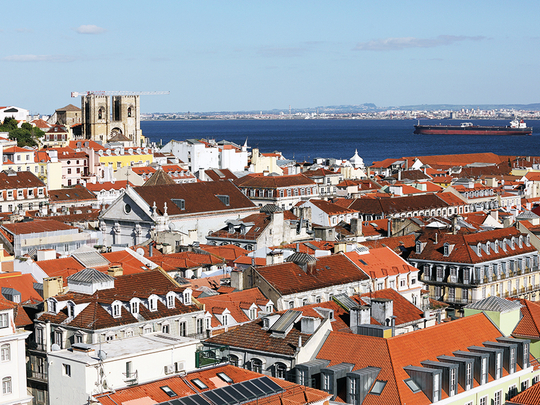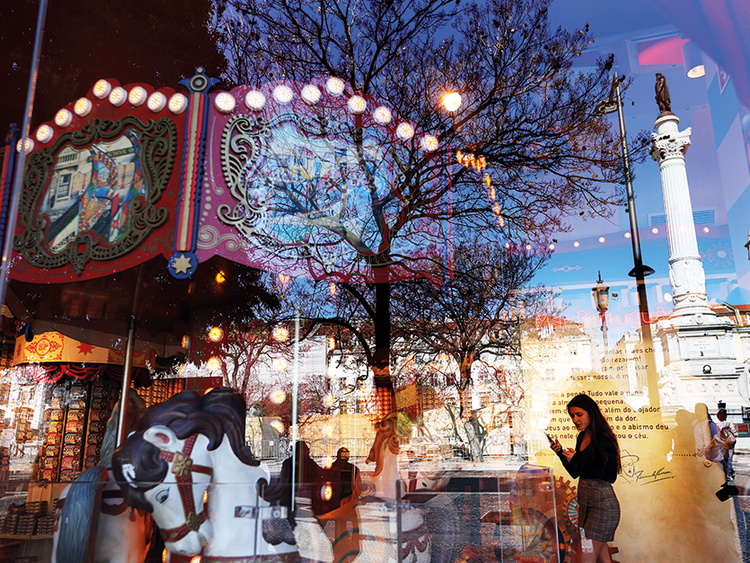
LISBON: Not long ago, Portugal’s capital, Lisbon, was a backwater of Europe. Its historical centre was dotted with decrepit and semi-abandoned buildings. The city served as a display case for the devastation of Europe’s debt crisis.
Then, in 2011, the country embarked upon a series of difficult steps in return for an international bailout of €78 billion ($92 billion, Dh333 billion), among them a new rental law that liberalised the capital’s housing market.
Today the city is booming. Tourists stream off cruise ships to fill its squares and ride tuk-tuks up and down the hills. Historical buildings now gleam. Restaurants throb with life. Lisbon’s 4.5 million annual visitors now outstrip the city’s population by a ratio of more than 8-to-1. About 30 hotels are scheduled to open in Lisbon in the coming year.
The housing squeeze in Lisbon, as well as in Porto, is becoming a political issue.
Far-left politicians want to tighten laws to stop evictions and protect tenants, including those who are over 65 and have lived in their property for more than 25 years.
While rules already exist to protect older residents, they are not ironclad.
Who has gained and who has lost in Lisbon’s revival has become a divisive issue for residents, and for Europe.
The revival of Lisbon feels to many less privileged residents who are being displaced like an abrupt swing from one extreme to the other. On some streets both extremes live side by side.
In the medieval neighbourhood of Mouraria, a luxury condominium is being built a few yards away from a renovated building that has become a second home for French and other foreign investors.
No doubt, most Portuguese, led by those who own real estate, consider Lisbon’s transformation to be an essential part of Portugal’s recent economy recovery.
The arrival of deep-pocketed investors and celebrities like Madonna is “creating housing problems in a few neighbourhoods,” said Luis Correia, a resident.
Joana Vasconcelos, one of Portugal’s best-known artists, said on Lisbon’s transformation: “My impression is that Lisbon is getting back to what it used to be, because this was a multicultural city for centuries, a trading centre that was connected to the world,” she said. “We lost our way but we’re now back on track.”
Why the residents are upset
By August, however, Azambuja should start getting rental income from a property he bought two years ago, in one of the auctions of derelict buildings held by the city. Rather than making carpets, he will soon be working in a bar that he will open on the ground floor.
“I guess that I’m really living both sides of this story,” Azambuja said. “To me, the only real drama is that all this change is happening so fast, in a kind of perfect storm, for which many people were completely unprepared.”
She consulted lawyers, who warned that she could lose a costly court battle. So she abandoned the place.
“I really thought that at my age there was no way that I could be forced out of my home, but I was sadly wrong,” she said.
She now lives with her daughter on the outskirts of Lisbon, but the short-term rental market aimed at tourists and developed by companies like Airbnb is spreading even there.
Luis Mendes, an urban geographer, is a member of a citizens’ platform called Morar em Lisboa, or Living in Lisbon, that has been fighting to halt housing evictions. He worries that Lisbon risks “killing the golden goose” that has made it so attractive to visitors.
“If we’re evicting the old residents and creating gated communities for the wealthy, then what are we going to show tourists who expect to see traditional Portuguese life on our streets?” he asked.
Some residents complain a dual economy has emerged, split between those who deal in property and tourism - and the rest. They also decry the “Disneyfication” of Lisbon, which they see in new shops, like “The Fantastic World of the Portuguese Sardine,” where tourists can buy a can of fish with their birth year on the label.














